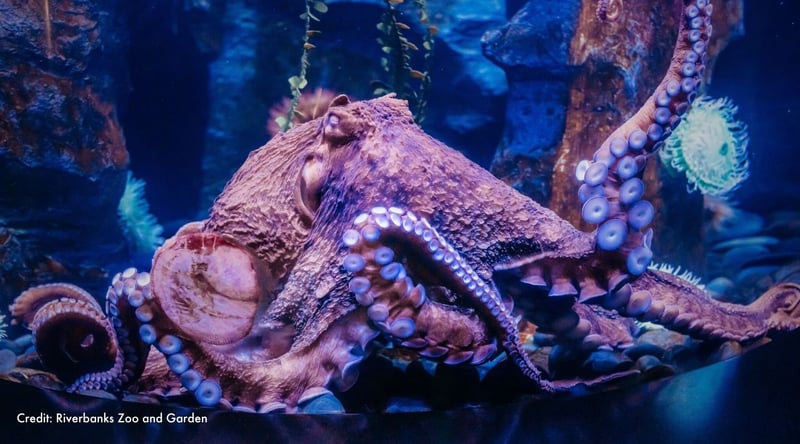
Susan the Giant Pacific Octopus (Unknown-2025) | Obituary
Obituary
Susan the Giant Pacific Octopus died at the Riverbanks Zoo and Garden in South Carolina in June.
Susan, a giant Pacific octopus, died of old age at the Riverbanks Zoo and Garden in South Carolina in June 2025. Giant Pacific octopuses live to around four years old. Her exact age is unknown, likely because she was stolen from her home in the wild. It’s not stated where Susan came from, but most zoos acquire these octopuses from the wild.
The zoo stated that Susan helped scientists “better understand her remarkable species and the importance of marine conservation.” However, studying wild animals in captivity provides little information about their lives in the wild. Further, captivity severely compromises octopuses’ welfare. Giant Pacific octopuses are generally solitary. They spend their days exploring the vast waters of the Pacific. Life in a small tank, forced to be near humans, is likely frightening and stressful.
Octopuses are intelligent, dynamic animals who can navigate mazes and use tools. Octopuses can open screw top jars, and, in the wild, have been observed stacking rocks to protect their den entrances. Octopuses in captivity have been observed escaping to neighboring tanks to steal food and short-circuiting lights by directing jets of water at them (in the wild, octopuses prefer the dark).
The giant Pacific octopus is the largest and longest-lived octopus species on Earth. Most giant Pacific octopuses weigh in between 22 and 110 pounds. Like other octopuses, they can squeeze into small holes and crevices much smaller than their bodies. Giant Pacific octopuses can change colors to match their surroundings and hide from predators. Though not considered endangered, the warming ocean could disrupt their breeding and habitat quality.
World Animal Protection urges everyone who loves octopuses to avoid zoos and aquariums and enjoy them in the wild.
